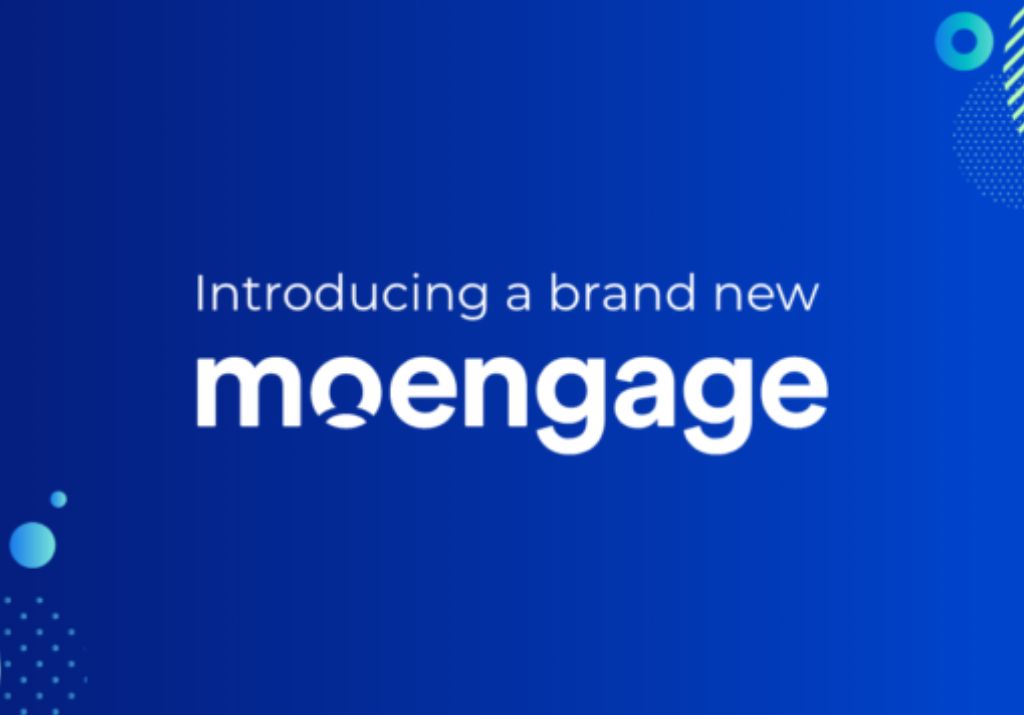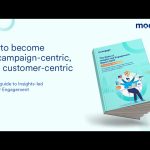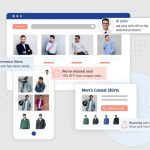First- party customer data is indeed vital for brands around the world to navigate to fully understand the customers they are dealing with as well as work towards their customer’s satisfaction with their brands.
Regardless of the existence of third-party cookies by Google, the first-party data is still relevant when it comes to retaining a brand’s current customers as well as scouting for new ones.
Therefore, the usage of first-party data is indeed a must have for brands to establish so that they will seem relevant to their customers.
I’m about to have a conversation with Saurabh Madan that will give you insights on the importance of first- party data among brands.

Saurabh Madan is the General Manager of MoEngage in Southeast Asia and Australia and New Zealand. His field of expertise is mainly in the industry of marketing & advertising. As of now, Saurabh is based in Singapore as the above designation in MoEngage.
How will first-party customer data enable brands to optimally personalise the customer experience?
The utilisation of first-party data for personalisation campaigns has been the cornerstone of data-driven, customer-centric strategies intended to serve digital-first consumers.
As Google phases out third-party cookies, brands must become comfortable relying on first-party data in their outreach efforts such as ad targeting or personalisation campaigns.
First-party data is considered the most valuable type of data as it’s collected directly from customers and is typically more accurate and relevant to the brand’s particular industry and market.
For brands, understanding their customers and delivering content, messages and experiences they expect will be the basic requirements in conducting business. According to McKinsey, 71% of consumers expect companies to deliver personalised experiences while 72% of consumers expect the brands they patronise to recognise them and know their interests.
Thus, personalisation will shift towards omnichannel experiences driven by expanding customer expectations for a more unified brand experience across the customer journey.
Brands must develop a more unique, one-to-one relationship with their customers through deep contextual personalisation strategies driven by first-party data such as leveraging personalisation to increase customer satisfaction and create business value will be a critical differentiator for brands which aim to remain competitive in an increasingly digital marketplace.
What are the roles of a Customer Engagement Platform in bridging the disconnect between brands and customers?
The objective of a customer engagement platform is to improve upon the disconnected, disjointed stack of applications that brands have traditionally utilised to engage and interact with customers.
These apps collect different sets of data and typically these data sets never “speak” to one another, thus resulting in an incredibly fragmented experience for customers in their interactions with the brand, turning what should be a delightful experience into an extremely frustrating one.
According to a recent Twilio study, 75% of brands believe they’re offering a good or excellent personalised customer experience but some consumers still rated 50 % of their shopping experiences as average, bad, or even poor, highlighting the disconnect between brands and consumers.
The role of a customer engagement platform is to bring all of these tools together in a streamlined, cohesive path so that brands have not just a unified, single point of truth about every customer but also a way to engage with them better.
Using a customer engagement platform, brands are able to reach their customers wherever they are – be it on email, social media, live chat, etc to avoid any mishaps with consumers.
How can brands utilise customer engagement platforms to obtain first-party consumer data insights?
With customer engagement platforms, brands will no longer be marketing products customers have already purchased or inviting them to programmes they’ve just quit. Instead, brands will be engaging with customers about the things they care about currently, on the channel they’re currently using.
Additionally, customer engagement platforms are able to collect a plethora of data points.
Brands need to be deriving meaningful insights, solving priority problems and adding value for their customers. For example, the majority of brands are still unsure of the ideal time to communicate with their target audience.
Customer engagement platforms, in that regard, are not just able to collect first-party data, but also empower brands to accurately segment their customers and recommend meaningful personalised messages for brands to increase engagement, retention and significantly improve overall customer experience.
In other words, using customer engagement platforms, brands can obtain and analyse data of their customers on a real time basis – ensuring legitimacy and credibility of information, and then develop strategies to attain the best performance from their campaigns.
How can brands create personalised, intuitive and insightful experiences through the data obtained and insights gleaned from these platforms?
Without a doubt, to perfect personalisation, one must have a 360-degree view of their customers and analyse the unique preferences of each customer.
Having said that, while 20.2% of marketers personalise with just basic data, only 13.8% of marketers run personalisation campaigns with data measuring usage patterns to segment customers accurately.
To create a truly delightful customer experience, brands must take into account customer attribute insights, customer journey insights and campaign insights to holistically build a robust omnichannel strategy.
Reinforcing that by sending the relevant information at the right time to the right segment of customers is a surefire way that brands can reach the pinnacle of personalisation.
However, brands must also proceed cautiously to maintain their customers’ trust given the fine line between over-personalisation and invasion of privacy in the eyes of consumers.
When brands figure out how to hit that sweet spot, that’s when they know they’ve succeeded in the personalisation game, backed with positive customer feedback, of course!
MARKETING Magazine is not responsible for the content of external sites.
After 20 years of evolving technology, shifting market trends, and adapting to changing consumer behaviour, the media landscape has nearly reached saturation.
We’ve optimised to the fullest, providing advertisers with abundant choices across technology, platforms, data-driven marketing, CTV, OTT, DOOH, influencer marketing, retail, etc.
Media specialists have diversified, but with more options comes the challenge of maintaining income growth. The industry is expanding, but revenue isn’t keeping pace.
Now, we’re at a TURNING POINT: time to explore and harness new sustainable revenue streams. While GroupM forecasts a 7.8% global ad revenue growth in 2024, challenges like antitrust regulation, AI and copyright issues, and platform bans persist.
Collaboration is key: partnerships that thrive on synergy, shared values, and aligned goals are becoming increasingly essential.
Hence, the Malaysian Media Conference, in its 20th year, has assembled the partners and players under one roof on October 25 for a day of learning, sharing, and exploring.
REGISTER NOW










